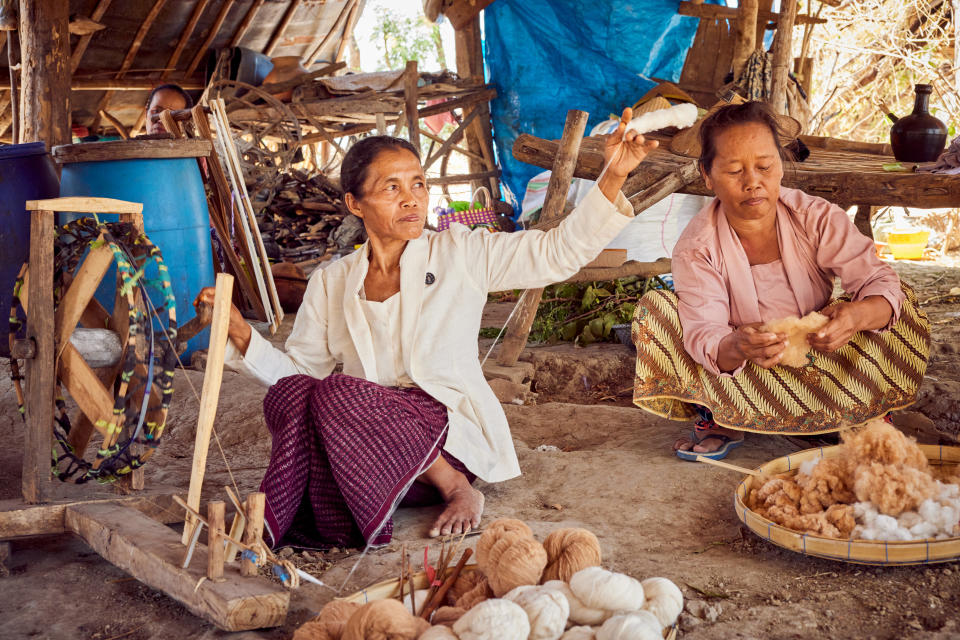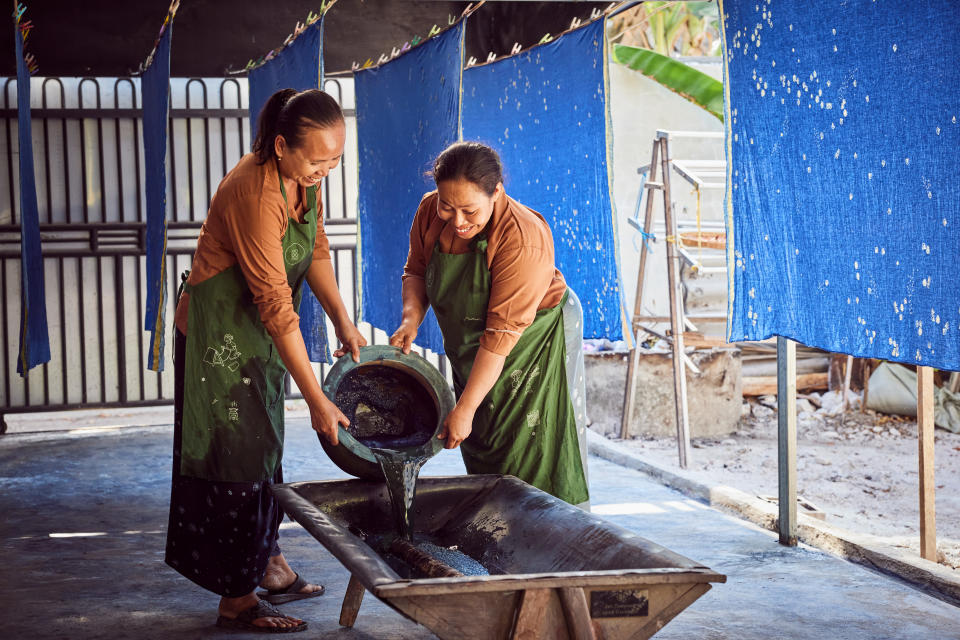Paris – Rolex has unveiled the latest round of honors for its biannual Entrepreneurship Awards, selecting five leaders of environmental and cultural projects from around the world.
Projects that protect flora and fauna were among this year’s winners, and one fashion brand founder was honoured.
More from WWD
Former World Bank economist Denica Riadini-Flesch was chosen for her social enterprise SukkhaCitta, part educational endeavor and part ethical fashion line.
“Unfortunately, the story of how clothes are made right now is not pretty,” said Riadini-Flesch. “They are really women who have been kept invisible because they have no access.”
Sixty percent of the clothes made in Indonesia are outsourced to women in villages as task workers, and only about 2 percent earn a living wage. That includes manufacturing to big name brands.
Riadini-Flesch changed that with SukkhaCitta. The garments are produced using artisanal techniques, traditional growing practices such as regenerative cotton and natural plant-based dyes. Profits from the line fund the school, which teaches women not only crafts but business skills and financial literacy so they can accurately calculate their earnings, for example. The enterprise is founded to empower women and create long-term structural change.


As soon as Riadini-Flesch started working with the artisans, she became aware of the environmental and health impacts of the chemical dyes they were working with, often deployed in someone’s kitchen, used without protective equipment and then dumped into local waterways.
“We are making sure that the economic opportunities we have been bringing to the villages do not come at the expense of the environment,” she said. All these issues are intertwined, and there are no easy one-time solutions.
“The deeper I got into it, the more I realized that climate action work is such intersectional work. You can’t protect nature if you don’t provide better livelihoods for women, because indigenous women in particular are the custodians of 80 percent of the world’s biodiversity,” she said. “But you can’t empower them and maintain a living wage if you don’t educate consumers.”
While raising wages is a fundamental first step, it is only a Band-Aid if materials and dyes cause deforestation and pollution in the production process. Transparency and traceability of the supply chain must also be taken into account, she said.
“Fashion is an interesting thing, because it’s always ‘What are you wearing?’ and there is power in that,” she said. “But at the same time, consumers need to understand that there are all these stories behind what they experience and that it is fundamentally interconnected with different issues. By changing that from the ground up, we can ensure that fashion allows you to express your values.
“If I can change people’s mindsets, in terms of thinking about the invisible impact behind something like clothing, and empower people to really think about the big picture – what if they can be part of the solution ?”


SukkhaCitta has grown to five schools across Indonesia and has trained more than 450 women. With the Rolex grant, Riadini-Flesch plans to expand the physical schools as well as digitize the curriculum and make it available through an app. The goal is to impact 10,000 students by 2030.
The technological benefits will be twofold. The younger generation has been hesitant to enter the profession because it is synonymous with poverty wages, and while that is changing and the digitized curriculum can reach a younger demographic, hopefully the app can improve the image of what it means to be. craftsman.
Riadini-Flesch said that idea came in part from the European tradition of artisans, craft and culture.
“Ultimately, that’s how we will get the young generation to revive our culture, when we change their status, that there is pride in being a craftsman and continuing this culture, and sustaining their indigenous heritage, ” she said.
The awards are in their 48th year, and now fall under the umbrella of the Perpetual Planet Rolex Initiative, launched in 2019. The awards consider work in the fields of environmental protection, science and health, technology, cultural heritage and exploration , which receives a grant. to support their projects.
Other recipients include biologist Constantino Aucca Chutas for his work protecting and reforesting the high Andes in Peru; Kenyan social entrepreneur Beth Koigi for her work to provide solar-powered atmospheric water generators to provide clean water to local communities; Ivory Coast primatologist Inza Koné for his work creating a community-managed natural reserve to protect animals and biodiversity, as well as providing local jobs, and Chinese scientist Liu Shaochuang, who is adapting his expertise at work on the Mars Rover to track the movements of and preserve the creation of a habitat for the last wild camels of the Gobi Desert.
The best of WWD